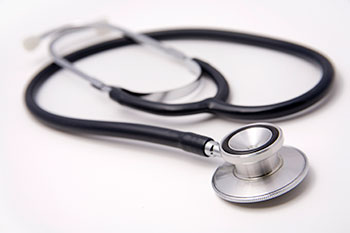Chef Tim Says...
| Salad in a Jar Construction Kit | 08/03/20 |
| Cooking: the real aromatherapy | 05/18/20 |
| Get Started Cooking with Stews | 01/09/20 |
| Paella | 07/16/18 |
| How to make your own shrimp stock | 10/09/17 |
| All "Chef Tim Says..." Columns | |
Dr. Tim Says...
| Not So Magic Rice | 04/09/18 |
| Leaky Gut Syndrome Quackery | 10/02/17 |
| 4 ways to protect your brain with diet | 07/18/17 |
| Chicken skin: to eat, or not to eat | 06/19/17 |
| Change is here | 06/12/17 |
| Medical technology | 03/27/17 |
| All "Dr. Tim Says..." Columns | |
Dr. Tim Says....
Medical technology

I love my job.
The last 25 years that I have been a physician have seen a revolution in therapies that allows us to have a tremendous impact on people's lives. There are a lot of criticisms, of course, with people saying that all doctors want to do is prescribe a pill and get patients out of their exam room or discharged from the hospital.
Electronic medical records are burdensome and challenging for doctors, who are under more and more pressure to see more and more patients as well as documenting their work and the quality of their performance. It all seems so much more impersonal, so it is understandable that people are challenged by today's medicine - in the process of becoming more technological, it seems that all there is now is the technology.
Recently I was at a conference, and a very famous and well published physician researcher gave the keynote address on how great technology is and how much it is going to revolutionize the practice of medicine. His promise was that your iPhone will let you interact with your physician more easily - by having all of your data tracked, documented, and made available to your physician so that he or she can react to your health in real time. He showed everything from sensors to live streaming of your physician so you can be seen anywhere.
He showed an amazing portable ultrasound that allows physicians to perform an echocardiogram and take real time pictures of the heart using their iPhone. His claim was that the technology would let your doctor have more time to spend with you because the machine would do the work for him or her. These innovations will result in "better, more cost-effective, and more humanized health care."
This is just ridiculous. Wishful thinking on the part of a person who has access to the world's best technology and the money to fund it.
That ultrasound device? It's not currently available, but the closest thing to it costs about $6,000.00. There will be a vast cost to the system to support these types of technologies, not just in the device itself, but also in training physicians to use it, so we will be investing more money in the technology and less in the physician-patient interaction if his predictions come to pass. As a general internist I was trained to read echocardiograms, and it is not a simple process. It takes hours and hours of time to learn, and hours and hours to capture good images and to be able to interpret them properly. It's much, much more difficult than using the stethoscope that I use to hear heart sounds. Yes, learning to use a stethoscope takes practice, but not at the level of nuance that looking at shadowy pictures of the heart takes.
Don't get me wrong. I love this technology and the progress in medicine, but the idea that this is going to lead to "more humanized health care" is folly.
So why am I talking about this in a column that focuses on food? Simple. Food is cheap. Food is human. Food is our shared experience. If we invested the same amount of effort in teaching ourselves (physicians) and our patients about how simple, cheap, and delicious it is to eat great food that can make you really healthy, we can both improve our patient's lives and the physician-patient relationship.
Let's run the numbers. If you equipped every general practitioner, internist, cardiologist, general pediatrician, and family medicine physician in the U.S. with the previously mentioned iPhone-based echocardiogram to replace their stethoscope, it would cost right around 1.6 billion dollars (not including the training). Even if the price comes down to $300.00 for the device, that's still 82 million dollars.
That's a lot of money for a single intervention, when the same 82 million dollars invested in changing how physicians and those in healthcare incorporate food into their practices would have a far greater impact.
This study says it all: Unhealthy diets linked to more than 400,000 cardiovascular deaths.
When you can prevent 400,000 cardiovascular deaths per year with something as simple as diet, you should invest in that - not bedside echocardiography.
Timothy S. Harlan, MD, FACP
Dr. Gourmet
